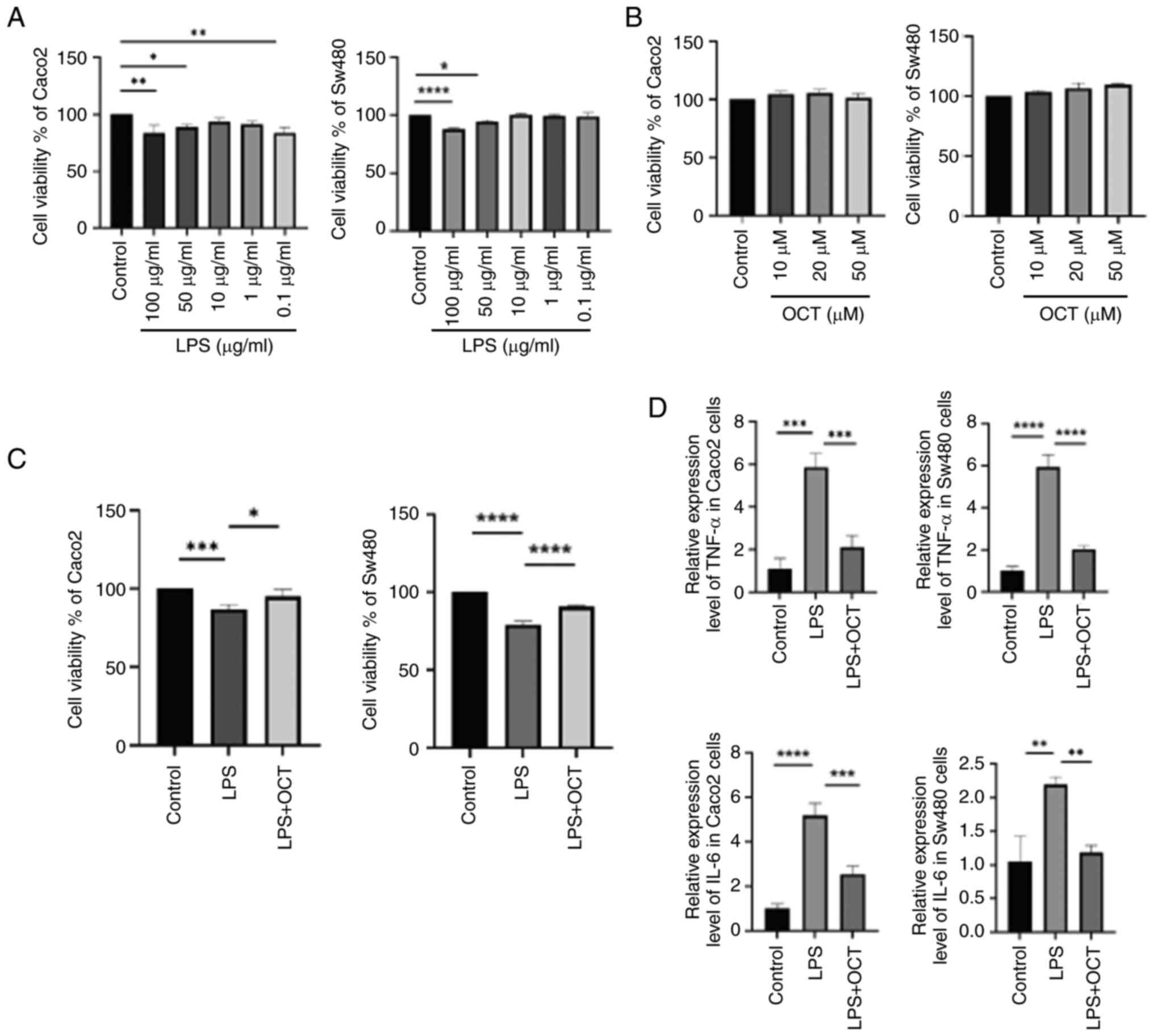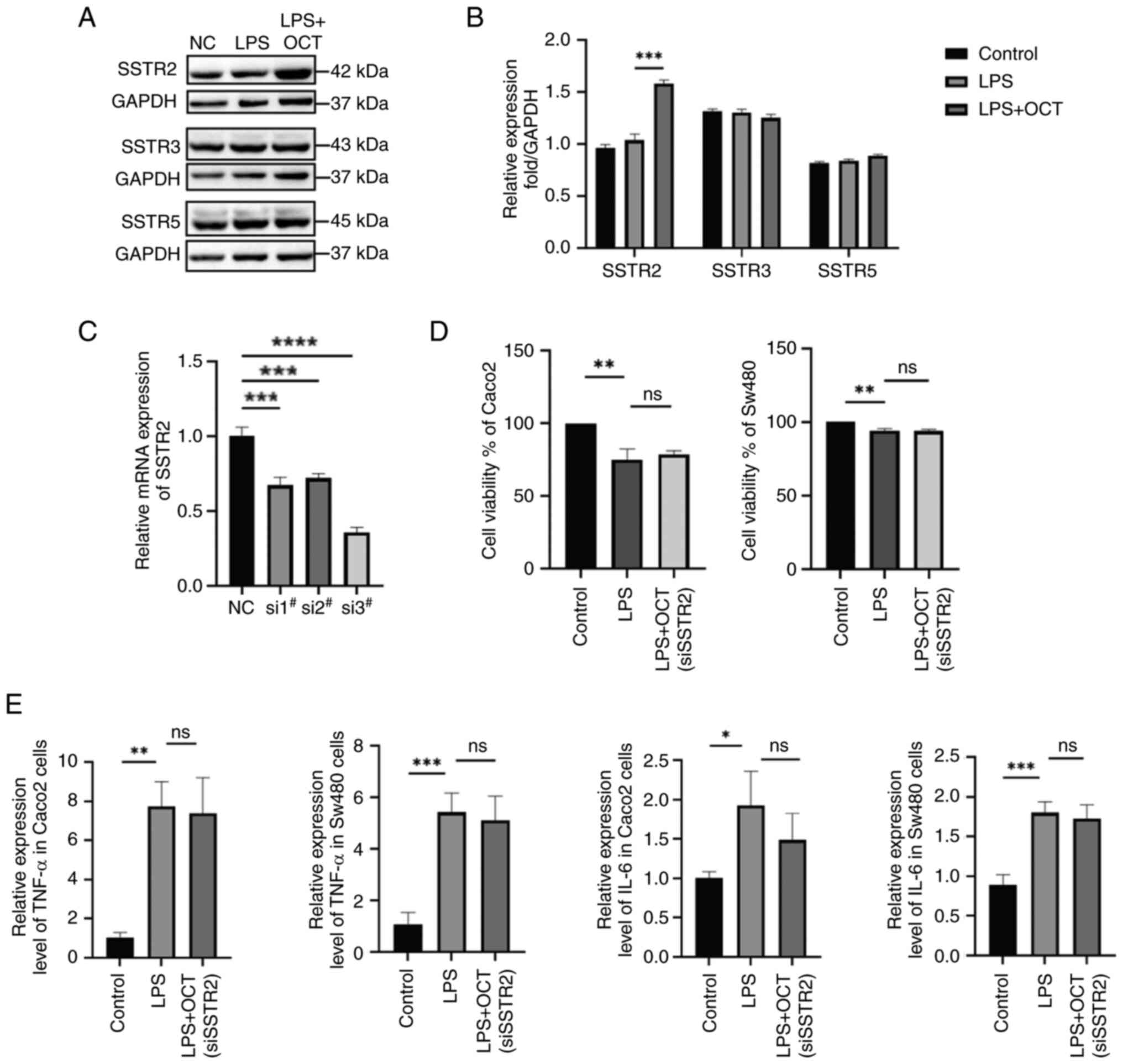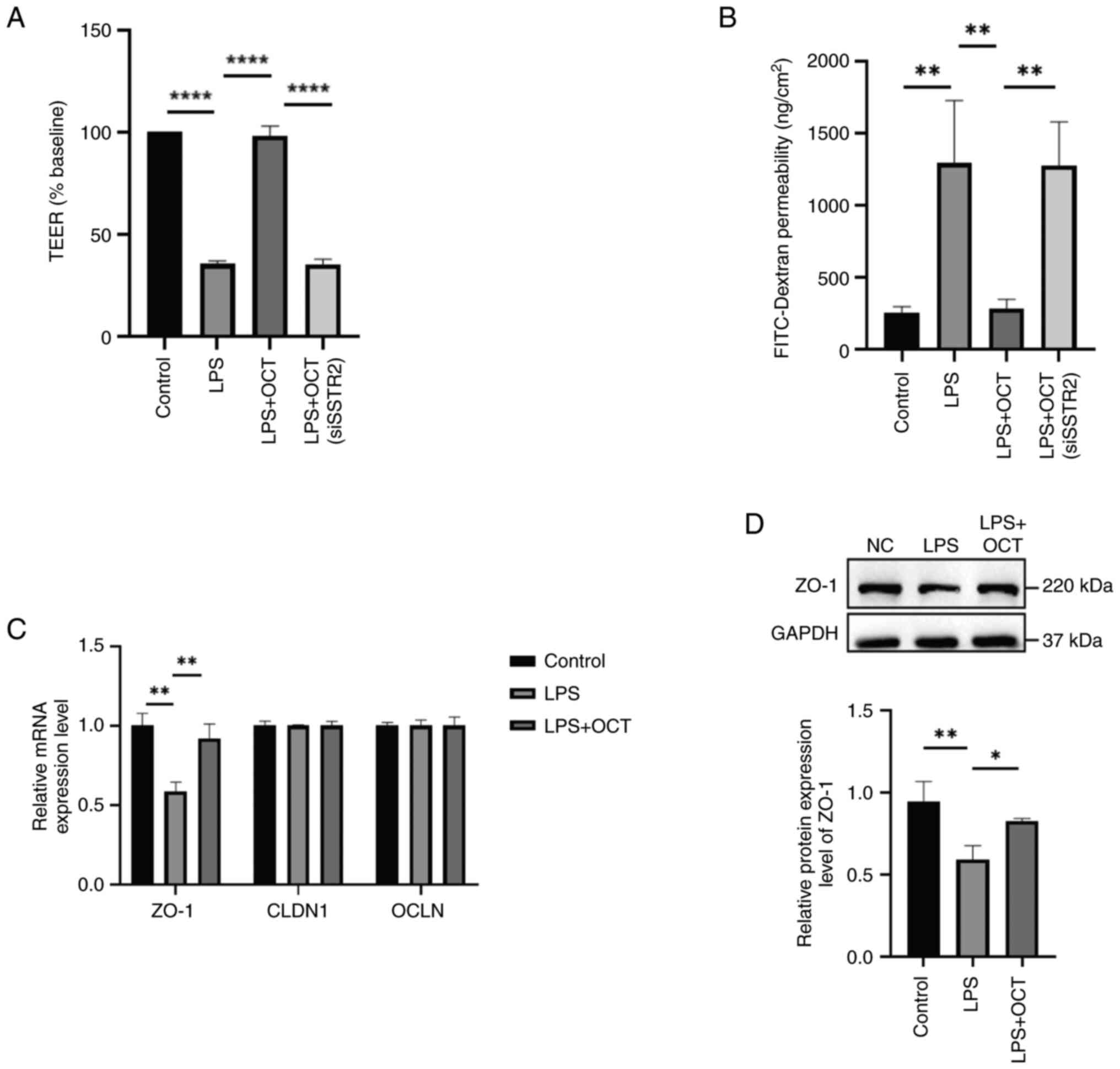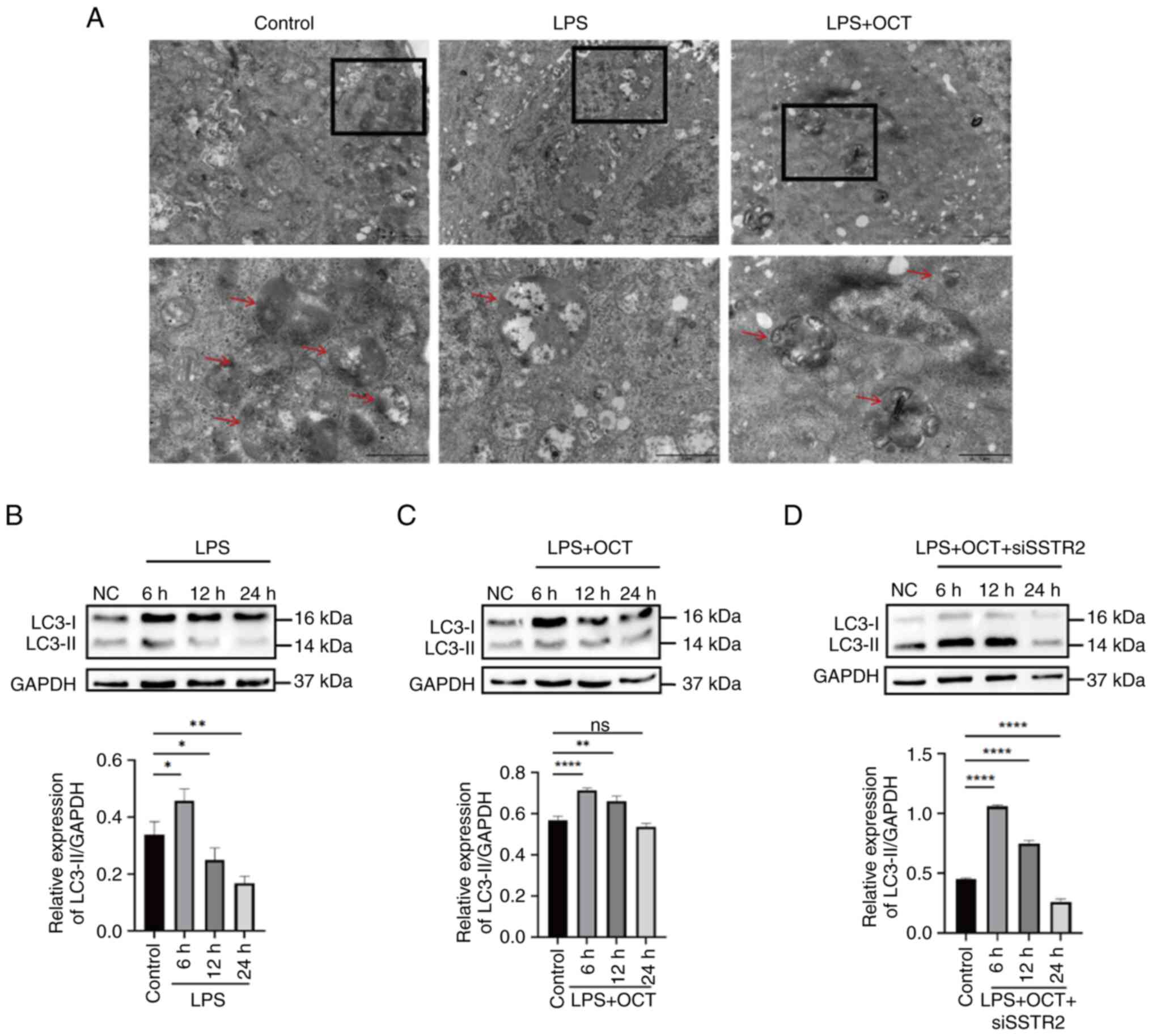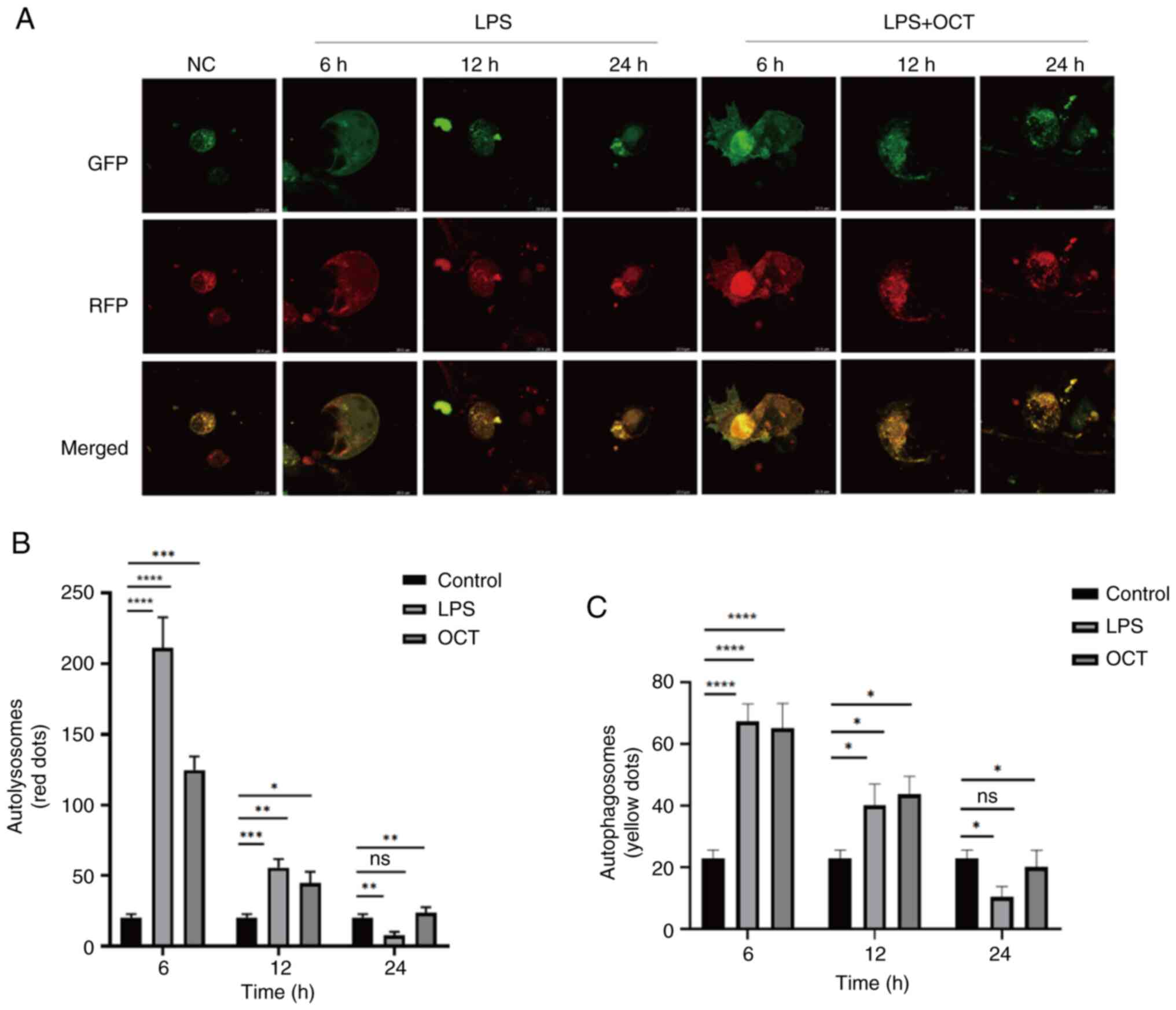|
1
|
Chelakkot C, Ghim J and Ryu SH: Mechanisms
regulating intestinal barrier integrity and its pathological
implications. Exp Mol Med. 50:1–9. 2018. View Article : Google Scholar : PubMed/NCBI
|
|
2
|
Rohr MW, Narasimhulu CA, Rudeski-Rohr TA
and Parthasarathy S: Negative effects of a high-fat diet on
intestinal permeability: A review. Adv Nutr. 11:77–91. 2020.
View Article : Google Scholar : PubMed/NCBI
|
|
3
|
An J, Liu Y, Wang Y, Fan R, Hu X, Zhang F,
Yang J and Chen J: The role of intestinal mucosal barrier in
autoimmune disease: A potential target. Front Immunol.
13:8717132022. View Article : Google Scholar : PubMed/NCBI
|
|
4
|
Shil A, Olusanya O, Ghufoor Z, Forson B,
Marks J and Chichger H: Artificial sweeteners disrupt tight
junctions and barrier function in the intestinal epithelium through
activation of the sweet taste receptor, T1R3. Nutrients.
12:18622020. View Article : Google Scholar : PubMed/NCBI
|
|
5
|
Chen Y, Cui W, Li X and Yang H:
Interaction between commensal bacteria, immune response and the
intestinal barrier in inflammatory bowel disease. Front Immunol.
12:7619812021. View Article : Google Scholar : PubMed/NCBI
|
|
6
|
Kaminsky LW, Al-Sadi R and Ma TY: IL-1β
and the intestinal epithelial tight junction barrier. Front
Immunol. 12:7674562021. View Article : Google Scholar : PubMed/NCBI
|
|
7
|
Zheng J, Sun Q, Zhang J and Ng SC: The
role of gut microbiome in inflammatory bowel disease diagnosis and
prognosis. United European Gastroenterol J. 10:1091–1102. 2022.
View Article : Google Scholar : PubMed/NCBI
|
|
8
|
Burroughs AK and McCormick PA:
Somatostatin and octreotide in gastroenterology. Aliment Pharmacol
Ther. 5:331–341. 1991. View Article : Google Scholar : PubMed/NCBI
|
|
9
|
McKay CJ, Imrie CW and Baxter JN:
Somatostatin and somatostatin analogues-are they indicated in the
management of acute pancreatitis? Gut. 34:1622–1626. 1993.
View Article : Google Scholar : PubMed/NCBI
|
|
10
|
Li X, Wang Q, Xu H, Tao L, Lu J, Cai L and
Wang C: Somatostatin regulates tight junction proteins expression
in colitis mice. Int J Clin Exp Pathol. 7:2153–2162.
2014.PubMed/NCBI
|
|
11
|
Takano T, Yonemitsu Y, Saito S, Itoh H,
Onohara T, Fukuda A, Takai M and Maehara Y: A somatostatin
analogue, octreotide, ameliorates intestinal ischemia-reperfusion
injury through the early induction of heme oxygenase-1. J Surg Res.
175:350–358. 2012. View Article : Google Scholar : PubMed/NCBI
|
|
12
|
Klomp MJ, Dalm SU, de Jong M, Feelders RA,
Hofland J and Hofland LJ: Epigenetic regulation of somatostatin and
somatostatin receptors in neuroendocrine tumors and other types of
cancer. Rev Endocr Metab Disord. 22:495–510. 2021. View Article : Google Scholar : PubMed/NCBI
|
|
13
|
No authors listed. Somatostatin receptors:
An alternative treatment target for advanced Merkel cell carcinoma.
Br J Dermatol. 184:e32–e52. 2021.PubMed/NCBI
|
|
14
|
Harda K, Szabo Z, Juhasz E, Dezso B, Kiss
C, Schally AV and Halmos G: Expression of somatostatin receptor
subtypes (SSTR-1-SSTR-5) in pediatric hematological and oncological
disorders. Molecules. 25:57752020. View Article : Google Scholar : PubMed/NCBI
|
|
15
|
Lahlou H, Saint-Laurent N, Estève JP,
Eychène A, Pradayrol L, Pyronnet S and Susini C: sst2 Somatostatin
receptor inhibits cell proliferation through Ras-, Rap1-, and
B-Raf-dependent ERK2 activation. J Biol Chem. 278:39356–39371.
2003. View Article : Google Scholar : PubMed/NCBI
|
|
16
|
Zatelli MC, Tagliati F, Taylor JE, Rossi
R, Culler MD and degli Uberti EC: Somatostatin receptor subtypes 2
and 5 differentially affect proliferation in vitro of the human
medullary thyroid carcinoma cell line tt. J Clin Endocrinol Metab.
86:2161–2169. 2001. View Article : Google Scholar : PubMed/NCBI
|
|
17
|
Colucci R, Blandizzi C, Ghisu N, Florio T
and Del Tacca M: Somatostatin inhibits colon cancer cell growth
through cyclooxygenase-2 downregulation. Br J Pharmacol.
155:198–209. 2008. View Article : Google Scholar : PubMed/NCBI
|
|
18
|
Shamsi BH, Chatoo M, Xu XK, Xu X and Chen
XQ: Versatile functions of somatostatin and somatostatin receptors
in the gastrointestinal system. Front Endocrinol (Lausanne).
12:6523632021. View Article : Google Scholar : PubMed/NCBI
|
|
19
|
Fleseriu M, Dreval A, Bondar I, Vagapova
G, Macut D, Pokramovich YG, Molitch ME, Leonova N, Raverot G,
Grineva E, et al: Maintenance of response to oral octreotide
compared with injectable somatostatin receptor ligands in patients
with acromegaly: A phase 3, multicentre, randomised controlled
trial. Lancet Diabetes Endocrinol. 10:102–111. 2022. View Article : Google Scholar : PubMed/NCBI
|
|
20
|
Lei S, Cheng T, Guo Y, Li C, Zhang W and
Zhi F: Somatostatin ameliorates lipopolysaccharide-induced tight
junction damage via the ERK-MAPK pathway in Caco2 cells. Eur J Cell
Biol. 93:299–307. 2014. View Article : Google Scholar : PubMed/NCBI
|
|
21
|
Li Y, Li X, Geng C, Guo Y and Wang C:
Somatostatin receptor 5 is critical for protecting intestinal
barrier function in vivo and in vitro. Mol Cell Endocrinol.
535:1113902021. View Article : Google Scholar : PubMed/NCBI
|
|
22
|
Liew CW, Vockel M, Glassmeier G, Brandner
JM, Fernandez-Ballester GJ, Schwarz JR, Schulz S, Buck F, Serrano
L, Richter D and Kreienkamp HJ: Interaction of the human
somatostatin receptor 3 with the multiple PDZ domain protein MUPP1
enables somatostatin to control permeability of epithelial tight
junctions. FEBS Lett. 583:49–54. 2009. View Article : Google Scholar : PubMed/NCBI
|
|
23
|
Valencak J, Heere-Ress E, Traub-Weidinger
T, Raderer M, Schneeberger A, Thalhammer T, Aust S, Hamilton G,
Virgolini I and Pehamberger H: Somatostatin receptor scintigraphy
with 111In-DOTA-lanreotide and 111In-DOTA-Tyr3-octreotide in
patients with stage IV melanoma: In-vitro and in-vivo results.
Melanoma Res. 15:523–529. 2005. View Article : Google Scholar : PubMed/NCBI
|
|
24
|
Glick D, Barth S and Macleod KF:
Autophagy: Cellular and molecular mechanisms. J Pathol. 221:3–12.
2010. View Article : Google Scholar : PubMed/NCBI
|
|
25
|
Parzych KR and Klionsky DJ: An overview of
autophagy: Morphology, mechanism, and regulation. Antioxid Redox
Signal. 20:460–473. 2014. View Article : Google Scholar : PubMed/NCBI
|
|
26
|
Kim KH and Lee MS: Autophagy-a key player
in cellular and body metabolism. Nat Rev Endocrinol. 10:322–337.
2014. View Article : Google Scholar : PubMed/NCBI
|
|
27
|
Ganapathy AS, Saha K, Suchanec E, Singh V,
Verma A, Yochum G, Koltun W, Nighot M, Ma T and Nighot P: AP2M1
mediates autophagy-induced CLDN2 (claudin 2) degradation through
endocytosis and interaction with LC3 and reduces intestinal
epithelial tight junction permeability. Autophagy. 18:2086–2103.
2022. View Article : Google Scholar : PubMed/NCBI
|
|
28
|
Hu CA, Hou Y, Yi D, Qiu Y, Wu G, Kong X
and Yin Y: Autophagy and tight junction proteins in the intestine
and intestinal diseases. Anim Nutr. 1:123–127. 2015. View Article : Google Scholar : PubMed/NCBI
|
|
29
|
Rathinam VAK, Zhao Y and Shao F: Innate
immunity to intracellular LPS. Nat Immunol. 20:527–533. 2019.
View Article : Google Scholar : PubMed/NCBI
|
|
30
|
Zhang YJ and Wu Q: Sulforaphane protects
intestinal epithelial cells against lipopolysaccharide-induced
injury by activating the AMPK/SIRT1/PGC-1a pathway. Bioengineered.
12:4349–4360. 2021. View Article : Google Scholar : PubMed/NCBI
|
|
31
|
Wu XX, Huang XL, Chen RR, Li T, Ye HJ, Xie
W, Huang ZM and Cao GZ: Paeoniflorin prevents intestinal barrier
disruption and inhibits lipopolysaccharide (LPS)-induced
inflammation in Caco-2 cell monolayers. Inflammation. 42:2215–2225.
2019. View Article : Google Scholar : PubMed/NCBI
|
|
32
|
Chen G, Ran X, Li B, Li Y, He D, Huang B,
Fu S, Liu J and Wang W: Sodium butyrate inhibits inflammation and
maintains epithelium barrier integrity in a TNBS-induced
inflammatory bowel disease mice model. EBioMedicine. 30:317–325.
2018. View Article : Google Scholar : PubMed/NCBI
|
|
33
|
Li Y, Wang S, Gao X, Zhao Y, Li Y, Yang B,
Zhang N and Ma L: Octreotide alleviates autophagy by up-regulation
of MicroRNA-101 in intestinal epithelial cell line Caco-2. Cell
Physiol Biochem. 49:1352–1363. 2018. View Article : Google Scholar : PubMed/NCBI
|
|
34
|
Saha K, Subramenium Ganapathy A, Wang A,
Michael Morris N, Suchanec E, Ding W, Yochum G, Koltun W, Nighot M,
Ma T and Nighot P: Autophagy reduces the degradation and promotes
membrane localization of occludin to enhance the intestinal
epithelial tight junction barrier against paracellular
macromolecule flux. J Crohns Colitis. 17:433–449. 2023. View Article : Google Scholar : PubMed/NCBI
|
|
35
|
Kim Y, Lee Y, Heo G, Jeong S, Park S, Yoo
JW, Jung Y and Im E: Modulation of intestinal epithelial
permeability via protease-activated receptor-2-induced autophagy.
Cells. 11:8782022. View Article : Google Scholar : PubMed/NCBI
|
|
36
|
Yu T, Guo F, Yu Y, Sun T, Ma D, Han J,
Qian Y, Kryczek I, Sun D, Nagarsheth N, et al: Fusobacterium
nucleatum promotes chemoresistance to colorectal cancer by
modulating autophagy. Cell. 170:548–563.e16. 2017. View Article : Google Scholar : PubMed/NCBI
|
|
37
|
Hejna M, Schmidinger M and Raderer M: The
clinical role of somatostatin analogues as antineoplastic agents:
Much ado about nothing? Ann Oncol. 13:653–668. 2002. View Article : Google Scholar : PubMed/NCBI
|
|
38
|
Stueven AK, Kayser A, Wetz C, Amthauer H,
Wree A, Tacke F, Wiedenmann B, Roderburg C and Jann H: Somatostatin
analogues in the treatment of neuroendocrine tumors: Past, present
and future. Int J Mol Sci. 20:30492019. View Article : Google Scholar : PubMed/NCBI
|
|
39
|
Vockel M, Breitenbach U, Kreienkamp HJ and
Brandner JM: Somatostatin regulates tight junction function and
composition in human keratinocytes. Exp Dermatol. 19:888–894. 2010.
View Article : Google Scholar : PubMed/NCBI
|
|
40
|
Sun JX and Yang N: Role of octreotide in
post chemotherapy and/or radiotherapy diarrhea: Prophylaxis or
therapy? Asia Pac J Clin Oncol. 10:e108–e113. 2014. View Article : Google Scholar : PubMed/NCBI
|
|
41
|
Rao S, Viola A, Ksissa O and Fries W:
Ménétrier's disease in a patient with refractory ulcerative
colitis: A clinical challenge and review of the literature. BMJ
Case Rep. 14:e2461372021. View Article : Google Scholar : PubMed/NCBI
|
|
42
|
Wang JW, Pan YB, Cao YQ, Wang C, Jiang WD,
Zhai WF and Lu JG: Loganin alleviates LPS-activated intestinal
epithelial inflammation by regulating TLR4/NF-κB and JAK/STAT3
signaling pathways. Kaohsiung J Med Sci. 36:257–264. 2020.
View Article : Google Scholar : PubMed/NCBI
|
|
43
|
Møller LN, Stidsen CE, Hartmann B and
Holst JJ: Somatostatin receptors. Biochim Biophys Acta. 1616:1–84.
2003. View Article : Google Scholar : PubMed/NCBI
|
|
44
|
Grant M and Kumar U: The role of
G-proteins in the dimerisation of human somatostatin receptor types
2 and 5. Regul Pept. 159:3–8. 2010. View Article : Google Scholar : PubMed/NCBI
|
|
45
|
Li J, Chen C, Bi X, Zhou C, Huang T, Ni C,
Yang P, Chen S, Ye M and Duan S: DNA methylation of CMTM3, SSTR2,
and MDFI genes in colorectal cancer. Gene. 630:1–7. 2017.
View Article : Google Scholar : PubMed/NCBI
|
|
46
|
Caruso ML, Di Pinto F, Ignazzi A, Coletta
S, Valentini AM, Cavalcanti E and De Michele F: Increased nerve
twigs in small intestinal mucosa with programmed cell death-ligand
1 and somatostatin receptor type 2A expression in recurrent Crohn
disease: A case report. Medicine (Baltimore). 97:e134922018.
View Article : Google Scholar : PubMed/NCBI
|
|
47
|
Gomes-Porras M, Cárdenas-Salas J and
Álvarez-Escolá C: Somatostatin analogs in clinical practice: A
review. Int J Mol Sci. 21:16822020. View Article : Google Scholar : PubMed/NCBI
|
|
48
|
Giuliani C: The flavonoid quercetin
induces AP-1 activation in FRTL-5 thyroid cells. Antioxidants
(Basel). 8:1122019. View Article : Google Scholar : PubMed/NCBI
|
|
49
|
Silverstein JM: Hyperglycemia induced by
pasireotide in patients with Cushing's disease or acromegaly.
Pituitary. 19:536–543. 2016. View Article : Google Scholar : PubMed/NCBI
|
|
50
|
Roden AC, Rakshit S, Johnson GB, Jenkins
SM and Mansfield AS: Correlation of somatostatin receptor 2
expression, 68Ga-DOTATATE PET scan and octreotide treatment in
thymic epithelial tumors. Front Oncol. 12:8236672022. View Article : Google Scholar : PubMed/NCBI
|
|
51
|
Periferakis A, Tsigas G, Periferakis AT,
Badarau IA, Scheau AE, Tampa M, Georgescu SR, Didilescu AC, Scheau
C and Caruntu C: Antitumoral and anti-inflammatory roles of
somatostatin and its analogs in hepatocellular carcinoma. Anal Cell
Pathol (Amst). 2021:18400692021.PubMed/NCBI
|
|
52
|
Alexander N, Marrano P, Thorner P, Naranjo
A, Van Ryn C, Martinez D, Batra V, Zhang L, Irwin MS and Baruchel
S: Prevalence and clinical correlations of somatostatin receptor-2
(SSTR2) expression in neuroblastoma. J Pediatr Hematol Oncol.
41:222–227. 2019. View Article : Google Scholar : PubMed/NCBI
|
|
53
|
Lechner M, Schartinger VH, Steele CD, Nei
WL, Ooft ML, Schreiber LM, Pipinikas CP, Chung GT, Chan YY, Wu F,
et al: Somatostatin receptor 2 expression in nasopharyngeal cancer
is induced by Epstein Barr virus infection: Impact on prognosis,
imaging and therapy. Nat Commun. 12:1172021. View Article : Google Scholar : PubMed/NCBI
|
|
54
|
Gonzalez B, Vargas G, Ramirez C, Asa S,
Cheng S, Sandoval C and Mercado M: Cytoplasmic expression of SSTR2
and 5 by immunohistochemistry and by RT/PCR is not associated with
the pharmacological response to octreotide. Endocrinol Nutr.
61:523–530. 2014.(In English, Spanish). View Article : Google Scholar : PubMed/NCBI
|
|
55
|
Chen W, Ding R, Tang J, Li H, Chen C,
Zhang Y, Zhang Q and Zhu X: Knocking Out SST gene of BGC823 gastric
cancer cell by CRISPR/Cas9 enhances migration, invasion and
expression of SEMA5A and KLF2. Cancer Manag Res. 12:1313–1321.
2020. View Article : Google Scholar : PubMed/NCBI
|
|
56
|
Di Tommaso N, Gasbarrini A and Ponziani
FR: Intestinal barrier in human health and disease. Int J Environ
Res Public Health. 18:128362021. View Article : Google Scholar : PubMed/NCBI
|
|
57
|
Dokladny K, Zuhl MN and Moseley PL:
Intestinal epithelial barrier function and tight junction proteins
with heat and exercise. J Appl Physiol (1985). 120:692–701. 2016.
View Article : Google Scholar : PubMed/NCBI
|
|
58
|
Mohammad S and Thiemermann C: Role of
metabolic endotoxemia in systemic inflammation and potential
interventions. Front Immunol. 11:5941502020. View Article : Google Scholar : PubMed/NCBI
|
|
59
|
Li E, Horn N and Ajuwon KM: EPA and DHA
inhibit endocytosis of claudin-4 and protect against
deoxynivalenol-induced intestinal barrier dysfunction through PPARγ
dependent and independent pathways in jejunal IPEC-J2 cells. Food
Res Int. 157:1114202022. View Article : Google Scholar : PubMed/NCBI
|
|
60
|
Larabi A, Barnich N and Nguyen HTT: New
insights into the interplay between autophagy, gut microbiota and
inflammatory responses in IBD. Autophagy. 16:38–51. 2020.
View Article : Google Scholar : PubMed/NCBI
|
|
61
|
Kim J, Choi S, Kim JO and Kim KK:
Autophagy-mediated upregulation of cytoplasmic claudin 1 stimulates
the degradation of SQSTM1/p62 under starvation. Biochem Biophys Res
Commun. 496:159–166. 2018. View Article : Google Scholar : PubMed/NCBI
|
|
62
|
Yang Z, Lin P, Chen B, Zhang X, Xiao W, Wu
S, Huang C, Feng D, Zhang W and Zhang J: Autophagy alleviates
hypoxia-induced blood-brain barrier injury via regulation of CLDN5
(claudin 5). Autophagy. 17:3048–3067. 2021. View Article : Google Scholar : PubMed/NCBI
|
|
63
|
Suzuki T: Regulation of the intestinal
barrier by nutrients: The role of tight junctions. Anim Sci J.
91:e133572020. View Article : Google Scholar : PubMed/NCBI
|
|
64
|
Zhou C, Li L, Li T, Sun L, Yin J, Guan H,
Wang L, Zhu H, Xu P, Fan X, et al: SCFAs induce autophagy in
intestinal epithelial cells and relieve colitis by stabilizing
HIF-1α. J Mol Med (Berl). 98:1189–1202. 2020. View Article : Google Scholar : PubMed/NCBI
|
|
65
|
Jia J, Gong X, Zhao Y, Yang Z, Ji K, Luan
T, Zang B and Li G: Autophagy enhancing contributes to the organ
protective effect of alpha-lipoic acid in septic rats. Front
Immunol. 10:14912019. View Article : Google Scholar : PubMed/NCBI
|
|
66
|
Tang C, Livingston MJ, Liu Z and Dong Z:
Autophagy in kidney homeostasis and disease. Nat Rev Nephrol.
16:489–508. 2020. View Article : Google Scholar : PubMed/NCBI
|
|
67
|
Foerster EG, Mukherjee T, Cabral-Fernandes
L, Rocha JDB, Girardin SE and Philpott DJ: How autophagy controls
the intestinal epithelial barrier. Autophagy. 18:86–103. 2022.
View Article : Google Scholar : PubMed/NCBI
|
|
68
|
Tanida I, Ueno T and Kominami E: LC3
conjugation system in mammalian autophagy. Int J Biochem Cell Biol.
36:2503–2518. 2004. View Article : Google Scholar : PubMed/NCBI
|
|
69
|
Wang SL, Shao BZ, Zhao SB, Chang X, Wang
P, Miao CY, Li ZS and Bai Y: Intestinal autophagy links
psychosocial stress with gut microbiota to promote inflammatory
bowel disease. Cell Death Dis. 10:3912019. View Article : Google Scholar : PubMed/NCBI
|
|
70
|
Mizushima N and Yoshimori T: How to
interpret LC3 immunoblotting. Autophagy. 3:542–545. 2007.
View Article : Google Scholar : PubMed/NCBI
|















